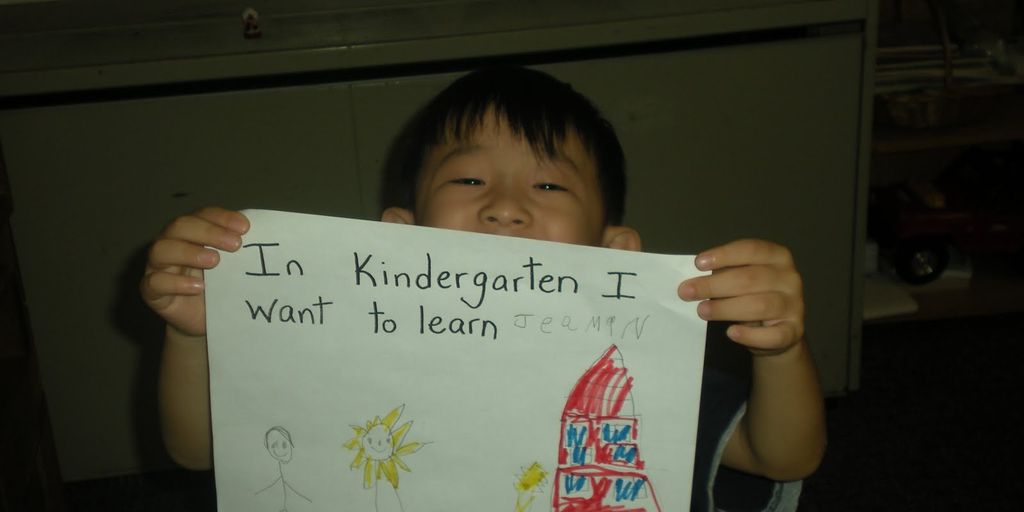
Parental guidance plays a crucial role in the holistic development of a child. It not only shapes their moral and social behaviors but also helps in cultivating a sense of responsibility and independence. Effective parental guidance involves understanding and nurturing a child’s individual traits, maintaining consistency, and providing nonviolent discipline. This article delves into the various aspects and long-term benefits of parental guidance in child development.
Key Takeaways
- Parental guidance is essential for developing a child’s sense of morality and responsibility.
- Effective parental guidance involves observing and nurturing a child’s individual traits.
- Consistency and predictability in responses are key to effective parental guidance.
- Nonviolent discipline techniques are crucial for healthy child development.
- Balancing authority and autonomy helps in fostering well-adjusted and independent individuals.
Understanding the Role of Parental Guidance in Child Development
Parental guidance plays a crucial role in shaping a child’s development. Parents provide the love, security, guidance, and support that children need to grow into healthy and successful adults. This guidance helps children manage their emotions and behavior effectively.
Defining Parental Guidance
Parental guidance refers to the way parents teach, assist, and facilitate their child’s emotional and behavioral management. It involves observing, recognizing, and assessing a child’s individual traits and then nurturing their strengths.
Historical Perspectives on Parental Guidance
Historically, parental guidance has evolved significantly. In earlier times, it was often more authoritarian, with strict rules and expectations. Over time, the approach has shifted towards a more balanced and democratic style, emphasizing the importance of understanding and responding to a child’s unique needs.
Modern Views on Parental Guidance
In contemporary society, parental guidance is seen as a dynamic and interactive process. Modern parents are encouraged to be authoritative rather than authoritarian, providing consistent and predictable responses while fostering a supportive environment. This approach helps children develop their own sense of morality and responsibility.
Effective parental guidance is not about being overly strict or permissive. It’s about walking alongside your child, showing them the way, and helping them grow into well-adjusted individuals.
The Impact of Parental Guidance on Moral and Social Development
Parental guidance is crucial in shaping a child’s moral and social development. Effective parental guidance helps children develop a strong sense of morality and social skills, which are essential for their overall growth and well-being.
Strategies for Effective Parental Guidance
Observing and Recognizing Individual Traits
Understanding a child’s unique characteristics is crucial for effective guidance. Parents should pay close attention to their child’s behavior, interests, and emotional responses. This helps in tailoring guidance that aligns with the child’s individual needs and personality.
Consistent and Predictable Responses
Consistency is key in parental guidance. When parents respond to their child’s actions in a predictable manner, it creates a stable environment. This stability helps children understand the consequences of their actions and fosters a sense of security.
Nonviolent Discipline Techniques
Nonviolent discipline is essential for healthy child development. Instead of resorting to physical punishment, parents can use techniques such as time-outs, loss of privileges, and positive reinforcement to guide behavior. This approach not only corrects misbehavior but also teaches children about self-control and responsibility.
Effective parental guidance involves a balanced approach where you show interest in your kids’ lives, give them autonomy, and provide them with guidance. This prepares your child for independence and nurtures their growth into well-adjusted individuals.
Balancing Authority and Autonomy in Parental Guidance
Balancing authority and autonomy in parental guidance is crucial for fostering a child’s growth. Authoritative parenting is often seen as the most effective approach. Unlike authoritarian parents who enforce strict compliance, authoritative parents set clear boundaries while encouraging a child’s sense of autonomy. This method helps children develop self-discipline and confidence.
To nurture independence, parents should avoid being overly protective. Instead, they should support their children in reaching their full potential by setting realistic achievement goals. This balance allows children to explore their capabilities and learn from their experiences.
Establishing boundaries that are developmentally appropriate for a child’s age, temperament, and abilities is essential. Avoid setting unrealistic or overly strict rules, as these can hinder a child’s growth. By setting achievable goals, parents can help their children build responsibility and self-esteem.
Effective parental guidance involves a delicate balance between authority and autonomy, ensuring children grow into well-adjusted individuals.
Challenges and Solutions in Providing Parental Guidance
Dealing with Misbehavior
Addressing misbehavior in children can be a daunting task for many parents. It’s crucial to differentiate between being supportive without being enabling. This means guiding children to understand the consequences of their actions while maintaining a nurturing environment. Practical solutions include setting clear boundaries, using nonviolent discipline techniques, and consistently reinforcing positive behavior.
Managing Emotional Needs
Children’s emotional needs are complex and require careful attention. Parents must navigate these needs by being empathetic and responsive. This involves recognizing emotional cues and providing a safe space for children to express their feelings. Empowering your parenting journey with actionable steps can help in managing these emotional challenges effectively.
Avoiding Overprotectiveness
While it’s natural for parents to want to protect their children, overprotectiveness can hinder a child’s development. Striking a balance between protection and independence is key. Encourage children to take on age-appropriate responsibilities and make decisions, fostering their sense of autonomy and confidence.
Effective parental guidance involves a delicate balance of support, discipline, and encouragement. By understanding and addressing the unique challenges of parenting, parents can create a nurturing environment that promotes healthy development.
Resources and Tools for Enhancing Parental Guidance
In today’s fast-paced world, having access to the right resources can make a significant difference in effective parenting. Parental guidance resources are designed to be user-friendly and accessible, providing parents with practical advice, articles, videos, checklists, and other tools to support their journey.
Self-Evaluation Techniques
Self-evaluation is a crucial step for parents to understand their strengths and areas for improvement. A well-structured self-evaluation guide can help parents reflect on their parenting styles and strategies. This introspection is essential for continuous growth and adaptation in parenting.
Child Behavior Management Programs
Managing a child’s behavior can be challenging, but there are numerous programs available that offer structured approaches to address this. These programs often include techniques for positive reinforcement, setting boundaries, and consistent discipline. They are designed to help parents navigate the complexities of child behavior effectively.
Conscious Parenting Mastery
Conscious parenting is about being aware and intentional in your parenting approach. Programs focused on conscious parenting mastery provide parents with the tools to foster a deeper connection with their children. These programs emphasize empathy, active listening, and mindful communication, which are vital for nurturing a healthy parent-child relationship.
Investing time in these resources can lead to a more fulfilling and effective parenting experience. By utilizing these tools, parents can better support their child’s development and well-being.
The Long-term Benefits of Effective Parental Guidance
Fostering Well-Adjusted Individuals
Effective parental guidance plays a crucial role in fostering well-adjusted individuals. When parents provide a balanced combination of expectation and support, children develop essential skills such as independence, self-control, and self-regulation. These skills are vital for navigating the complexities of adult life.
Building Integrity
Parental guidance that emphasizes moral values and ethical behavior helps in building integrity in children. By consistently modeling and reinforcing these values, parents ensure that their children grow up with a strong sense of right and wrong, which is indispensable for personal and professional success.
Ensuring Future Success
Sensitive, responsive parenting can protect children from chronic disease and toxic stress, setting the stage for a healthier and more successful future. By addressing both emotional and physical needs, parents equip their children with the resilience needed to face life’s challenges.
The combination of expectation and support helps children of authoritative parents develop skills such as independence, self-control, and self-regulation.
Conclusion
In conclusion, parental guidance is an indispensable element in the holistic development of a child. It lays the foundation for children to develop their own sense of morality, responsibility, and social behavior. Effective parental guidance involves understanding a child’s unique characteristics, providing consistent and positive reinforcement, and setting appropriate boundaries. By walking alongside their children and showing them the way, parents can cultivate their children’s strengths and help them grow into well-adjusted, autonomous individuals. Ultimately, the role of parents in guiding their children cannot be overstated, as it shapes not only their present behavior but also their future potential.
Frequently Asked Questions
What is parental guidance?
Parental guidance involves observing, recognizing, and assessing a child’s individual characteristics and then cultivating their strengths. It includes teaching children socially acceptable behavior and respectful interaction with others.
Why is parental guidance important?
Parental guidance is crucial because it helps children develop their own sense of morality and responsibility. It shapes socially acceptable behavior and demonstrates appropriate interaction with others.
How can parents provide effective guidance?
Parents can provide effective guidance by understanding their child’s behavior, praising good behavior, responding to misbehavior nonviolently, and being consistent and predictable in their actions.
What is the difference between authoritative and authoritarian parenting?
Authoritative parenting is democratic and involves leading with empathy and understanding, while authoritarian parenting is strict and controlling, often lacking in warmth and responsiveness.
How does parental guidance impact a child’s social development?
Parental guidance helps children develop social skills by teaching them how to interact respectfully with others, manage emotions, and understand social boundaries.
What are some challenges in providing parental guidance?
Challenges include dealing with misbehavior, managing emotional needs, and avoiding overprotectiveness. Effective strategies involve nonviolent discipline, consistency, and supporting the child’s independence.






